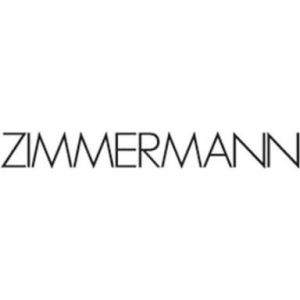Zimmermann
Zimmermann is a luxury Australian brand of fashion founded in 1991 by sisters Nicky and Simone Zimmermann. Its first store was opened in 1992.[1] Zimmermann presents their ready-to-wear collections each year in both Australia and the USA at New York Fashion Week. In the following years, the Zimmermann label extended to Swim Separates, Kids, and Accessories. [2]
In 2008 Zimmermann launched its online boutique at zimmermannwear.com and in 2014 the brand received the Australian Fashion Laureate Award, AFI Best Swimwear Designer, Prix de Marie Claire Best Swimwear Brand, and Prix de Marie Claire Best Swimwear Designer.[3]
Controversy
In June 2020, right after Zimmermann posted their support towards Black Lives Matter protests, several former interns and employees came forward to call out the company for performative allyship. It continued with Diet Prada, fashion’s gatekeeper and scandal watchdog, called out the brand for its racially insensitive grooming and presentation standards for retail workers.[4]
Zimmermann’s leaked brand guidelines include an extensive summary outlining specific hair and makeup requirements, complete with an exhaustive list of makeup recommendations from brands such as Nars, Giorgio Armani, Eve Lom and Josie Maran. In the absence of any Black models, Zimmermann’s brand guide features images of famous, predominantly white models from photoshoots and fashion shows. Amongst the Hadid sisters, Candice Swanepoel and Romee Strijd, two Asian models were included only after employees allegedly raised concerns about the lack of diversity.
Zimmermann’s guidelines dictate that hair can be worn in “soft, textured loose waves, or blowdried straight” and that “there are to be no high buns, top knots, plaits, braids or ponytails worn high on top of the head”. For clarity, Zimmermann insists that ponytails “can be worn low to mid with a part or no part”. This rather autocratic rule completely disregards the needs of those with curly hair, especially Black women who have a history of racial discrimination towards their natural hair.
Makeup is a non-negotiable, with Zimmermann stressing twice that “makeup must be worn to work” and to “please do not come to work without makeup on”. The lack of consideration for Black employees is evident, with Benefit’s Hoola bronzing powder being the only product recommended “for darker/olive skin”.[5]
In respond to the allegation, Zimmermann had made a public apology on their Instagram account, as well as outlining the steps that they will take regarding the critics. The company said it will also implement additional training for all corporate and retail teams to build a culture of diversity and inclusion; introduce an anonymous service for the reporting of incidents; ensure “constant” diverse representation in its campaigns and shows, both behind the scenes and on the runway; donate to the NAACP Legal Defense and Educational Fund in America and the Aboriginal Legal Service in Australia, and encourage its partners to make similar commitments and be active in the conversation about how brands can be a force for change.[6]
References
- ↑ http://www.vogue.com.au/celebrity/designers/zimmermann,89
- ↑ https://www.bloomberg.com/research/stocks/private/snapshot.asp?privcapid=279344022
- ↑ https://www.zimmermannwear.com/hk/our-story
- ↑ https://www.flare.com/fashion-beauty/fashion-brands-called-out-racism/amp/
- ↑ https://fashionjournal.com.au/fashion/zimmermann-is-under-fire-for-its-racially-discriminative-brand-guidelines/
- ↑ https://wwd.com/fashion-news/designer-luxury/zimmermann-responds-to-allegations-of-racial-discrimination-1203649244/
